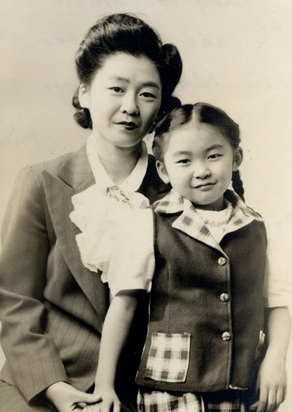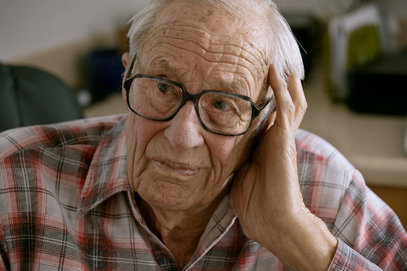This Guy Didn't Stand by When His Neighbors Were in Trouble
 Marielle Tsukamoto was five years old when her family was forced to leave their California farm in 1942 and move across the country to Jerome incarceration camp in Arkansas.
Marielle Tsukamoto was five years old when her family was forced to leave their California farm in 1942 and move across the country to Jerome incarceration camp in Arkansas.Judged a threat to national security by the U.S. and Canadian governments, by neighbors and former friends, most families of Japanese heritage lost their homes and all they owned.
But thanks to one man with moral courage, a sense of justice and a strong work ethic, after the war Marielle and her family were able to come home--home to a running farm, money in the bank and their freshly cleaned house waiting for them.
 Bob Fletcher in 2010 courtesy Randall Benton/Sacramento Bee In 1942, Bob Fletcher worked as a California fruit inspector in the region southwest of Sacramento where he was known by many of the farmers.
Bob Fletcher in 2010 courtesy Randall Benton/Sacramento Bee In 1942, Bob Fletcher worked as a California fruit inspector in the region southwest of Sacramento where he was known by many of the farmers. As Japanese families packed up to leave for relocation camps, Marielle's father, Al Tsukamoto approached Bob with a proposition.
Would he manage two farms, one owned by an elderly couple while the owners were gone?
If Bob would pay the taxes and mortgages, the offer went, he could keep all the profits.
Bob agreed. He knew little to nothing about the farmers' crops, flame tokay grapes, but he learned. Bob quit his job and committed to run the Tsukamoto farm along with the other two, a total of ninety acres.
This did not make Bob Fletcher popular in town.
 Photo by Dorothea Lange & National Archives Many families sent away to relocation camps could not keep up on their bills and locals had a chance to buy their properties at auction.
Photo by Dorothea Lange & National Archives Many families sent away to relocation camps could not keep up on their bills and locals had a chance to buy their properties at auction.Even before the war Japanese-Americans suffered prejudice. Their children were not allowed to go to school with white children, and sometimes people begrudged their success in business and farming.
Bob Fletcher didn't care what his neighbors thought. He lived in the Tsukamoto's
bunk house and worked farmers' hours, dawn to dusk, for three years.
“Never did agree with the evacuation,” Bob told The Sacramento Bee in 2010. “They were the same as anybody else. It was obvious they had nothing to do with Pearl Harbor.”
“I don’t know about courage...After the war, most Japanese-American farmers came home to nothing, but Marielle remembers arriving to find her family's house just as they had left it, but newly cleaned for their homecoming by Teresa Fletcher, Bob's new wife.
It took a devil of a lot of work.”
Teresa lived in the bunkhouse with her husband, though she had been invited to stay in the house. The Fletcher's used only half of the farms' profits for themselves, leaving money in the bank so the relocated families could make a new start.
As is often true of people who act selflessly, Bob didn't think he was extraordinary. “I don’t know about courage,” he told the Sacramento Bee. “It took a devil of a lot of work.”
How do we cultivate this selfless quality, where we act with generosity, do the right thing, stand up for others being persecuted and it's just all in a day's work?
Let me know what you think!
Published on August 30, 2016 09:38
date newest »
newest »
 newest »
newest »




I hope that for myself, too. I guess I keep thinking that if I write enough stories like this, I will become brave. :)